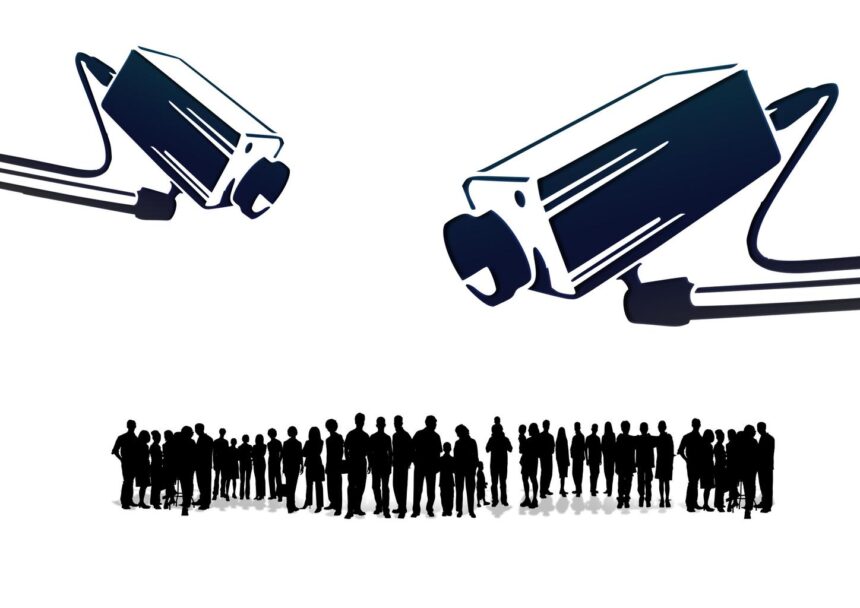The New Idols of Our Age
In an era where humanity prides itself on unprecedented technological prowess, where algorithms “see” and sensors “hear,” we often equate mechanical simulation with genuine advancement. Yet, a deeper, more timeless wisdom suggests a radical re-evaluation. Far from being at the apex of civilization, those who trust implicitly in their technology may be, in a profound sense, the new primitives, echoing the very descriptions of idolatry from millennia past.
Torah’s Timeless Warning
Consider the stark, yet remarkably prescient, verses from Psalms:
Their idols are silver and gold, the work of men’s hands.
They have mouths, but they speak not: eyes have they, but they see not:
They have ears, but they hear not: noses have they, but they smell not:
They have hands, but they handle not: feet have they, but they walk not:
neither speak they through their throat.
They that make them are like unto them; so is every one that trusteth in them. (Psalms 115:4-8)
And again, with an even more direct echo:
“The idols of the nations are silver and gold, the work of men’s hands.
They have mouths, but they speak not: eyes have they, but they see not:
They have ears, but they hear not: neither is there any breath in their mouths.
They that make them are like unto them: so is every one that trusteth in them.” (Psalms 135:15-18)
These passages speak of ancient idols, crafted by human hands, endowed with the form of senses but utterly devoid of their function. They possess eyes that do not see, ears that do not hear, mouths that do not speak. Their fundamental characteristic is their inertness, their lack of true life, consciousness, and independent agency. And the chilling prognosis: “They that make them are like unto them; so is every one that trusteth in them.” Trusting in these inert forms leads to a mirroring of their very emptiness.
Machines Without a Soul
Now, pause and consider our modern “miracle” technologies. Surveillance cameras “see” everything, yet comprehend nothing of the human drama unfolding before them. Microphones “hear” every whisper, yet possess no capacity for understanding, empathy, or discernment. Automated systems “act” with precision, yet utterly lack moral judgment or consciousness. These technologies, so lauded for their capabilities, are precisely the “work of men’s hands” that mimic living faculties without possessing their essence. A camera merely converts light patterns into digital data; it has no perception. A microphone transduces sound waves into electrical signals; it has no comprehension. These are not extensions of our consciousness, but rather sophisticated, yet ultimately primitive, tools that fulfill the very attributes of the ancient idols. They are, quite literally, “eyes that see not” in any meaningful sense, and “ears that hear not” with true wisdom. And the warning from the Psalms remains strikingly relevant: “all who trust in them will eventually be like them.” A society that elevates these imitations to the status of ultimate truth risks becoming as insensate and unfeeling as the machines it venerates.
Maimonides’ Piercing Insight
This concept is further illuminated by the profound insights of Maimonides in his Epistle to Yemen. He argues against the superficial comparison of true religion with other belief systems, using an analogy that perfectly frames our modern dilemma:
Our religion differs as much from other religions for which there are alleged resemblances as a living man endowed with the faculty of reason is unlike a statue which is ever so well carved out of marble, wood, bronze or silver. When a person ignorant of divine wisdom or of God’s works sees the statue that superficially resembles a man in its contours, form, features, and color, he believes that the structure of the parts of a statue is like the constitution of a man, because he is deficient in understanding concerning the inner organization of both. But the informed person who knows the interior of both, is cognizant of the fact that the internal structure of the statue betrays no skillful workmanship at all, whereas the inward parts of man are truly marvellously made, a testimony to the wisdom of the Creator, such as the prolongation of the nerves in the muscles and their ramifications, the branching out of the sinews and their intersections and the network of their ligaments and their manner of growth, the articulations of the bones and the joints, the pulsating and non-pulsating blood vessels and their ramifications, the setting of the limbs into one another, the uncovered and covered parts, every one of these in proportion in form and proper place.
Likewise a person ignorant of the secret meaning of Scripture and the deeper significance of the Law would be led to believe that our religion has something in common with another if he makes a comparison between the two. For he will note that in the Torah there are prohibitions and commandments, just as in other religions there are permitted and interdicted acts. Both contain a system of religious observances, positive and negative precepts, sanctioned by reward and punishment.
If he could only fathom the inner intent of the law, then he would realize that the essence of the true divine religion lies in the deeper meaning of its positive and negative precepts, every one of which will aid man in his striving after perfection, and remove every impediment to the attainment of excellence. These commands will enable the throng and the élite to acquire moral and intellectual qualities, each according to his ability. Thus the godly community becomes pre-eminent, reaching a twofold perfection. By the first perfection I mean, man’s spending his life in this world under the most agreeable and congenial conditions. The second perfection would constitute the achievement of intellectual objectives, each in accordance with his native powers.
The tenets of the other religions which resemble those of Scripture have no deeper meaning, but are superficial imitations, copied from and patterned after it. They modelled their religions upon ours in order to glorify themselves, and indulge the fancy that they are similar to so and so. However, their counterfeiting is an open secret to the learned. Consequently they became objects of derision and ridicule just as one laughs and smiles at an ape when it imitates the actions of men.
Maimonides’ analogy is devastatingly precise. He contrasts the “living man endowed with the faculty of reason” with a “statue which is ever so well carved,” noting that while the statue may superficially resemble a man in form, its “internal structure betrays no skillful workmanship at all.” The true marvel lies in the intricate, purposeful inner workings of a living being. Similarly, he argues that while other beliefs might mimic the superficial structure of Torah law, they lack its “deeper meaning” and inner intent, which is to aid humanity in “striving after perfection” and acquiring “moral and intellectual qualities.” Their imitation is “superficial,” a “counterfeiting” that is “an open secret to the learned,” leading to “derision and ridicule.”
Extend this profound analogy to our modern technological landscape. Our surveillance cameras, AI systems, and automated factories are indeed “statues,” meticulously carved to look like they perform human functions. A camera imitates an eye; an AI “learns” like a brain. But like Maimonides’ statue, their inner workings, though complex mechanically, lack the purpose, consciousness, and soul that animate genuine human faculties. They are not striving for perfection, acquiring moral qualities, or connecting to a deeper truth. Their “vision” is devoid of understanding, their “hearing” of wisdom, their “actions” of intent. They are the ultimate “superficial imitations,” and to believe that they truly “see” or “hear” as a conscious being does is to be “ignorant of divine wisdom” and the inner organization of true being. To trust in their data as definitive truth, or their outputs as ultimate wisdom, is to fall prey to the very illusion Maimonides describes. Our technology’s dazzling externals mask an internal spiritual emptiness, making those who uncritically embrace them the “primitives” in the pursuit of true, living wisdom.
The Pervasive Idolatry of Institutional Trust in Technology
This spirit of trusting in lifeless technological idols is not confined to personal devices or individual choices; it permeates the very fabric of our institutional and national life, shaping the decisions that govern education, health, economics, social policy, national defense, and virtually every measurable domain. Across these fields, experts and policymakers increasingly defer to the outputs of algorithms, data models, and automated systems, mistaking their mechanical precision for wisdom and their predictive patterns for truth. This uncritical reliance mirrors the ancient folly described in Psalms, rendering our institutions—and the societies they serve—as spiritually and morally stunted as the inert tools they venerate. A radical revamp is urgently needed to restore human judgment, ethical discernment, and divine purpose to the heart of our collective endeavors.
In education, algorithms dictate curricula and assess student potential, reducing the richness of human learning to standardized metrics. Adaptive learning platforms “personalize” education by analyzing data points, yet they cannot inspire a love of knowledge or nurture moral character. These systems, with their “eyes that see not,” fail to perceive the unique spark in each student, risking a generation educated by soulless efficiency rather than transformative wisdom.
In health, diagnostic AI and predictive models guide treatment plans, often prioritizing statistical probabilities over the nuanced realities of individual patients. These tools, with “ears that hear not,” cannot grasp the emotional or spiritual dimensions of healing, leaving patients as data points in a sterile equation. Economics bows to algorithmic trading and forecasting models, which drive markets with dizzying speed but no regard for human flourishing or societal stability. These “hands that handle not” amplify inequality and volatility, blind to the deeper human costs of their calculations.
Social policy, too, falls prey to this idolatry. Predictive policing algorithms target individuals based on opinions, perpetuating totalitarianism under the guise of security, while welfare systems automate decisions that enslave. These “mouths that speak not” offer no empathy, no understanding of the human suffering they purport to address.
In national defense, autonomous weapons and surveillance systems promise security, yet their “feet that walk not” lack the moral restraint or strategic foresight of human commanders, risking escalation without accountability.
Across every sphere, the pattern is clear: institutions (people) have outsourced their judgment to tools that mimic human faculties but lack their essence, creating a world where efficiency trumps meaning, and data supplants soul.
This pervasive trust in technological idols does not merely diminish our institutions; it dehumanizes them, making them “like unto” the lifeless systems they rely upon. As Maimonides warned, superficial imitations—however sophisticated—lack the “deeper meaning” that leads to perfection. Our institutions, by prioritizing mechanical outputs over moral and intellectual qualities, risk becoming as inert as the statues they emulate, incapable of fostering the twofold perfection of agreeable living conditions and intellectual-spiritual growth. To break free from this primitive progress, we must revamp our institutional frameworks, reasserting the primacy of wisdom, moral responsibility, and divine guidance. Only by realigning our systems with the living principles of Torah and universal moral laws can we ensure that education inspires, health heals, economies serve, policies uplift, and defense protects—not as automated processes, but as acts of profound human purpose.
A Path Beyond the Deluge
Yet, this is not a message of despair, but of profound hope. The Torah, in its timeless wisdom, does not leave us without a path through this “deluge of technologies” predicted for the era of redemption. The antidote to this superficiality, and the route to genuine human flourishing, lies in internal cultivation – in learning Torah and performing acts of kindness. The Rebbe Rayatz, Rabbi Yosef Yitzchak Schneersohn, offered a six-point system that provides a spiritual compass for navigating this technologically saturated world, ensuring purity and purpose:
- “Avoid evil,” which includes minimizing worldly pleasures: In a future where instant gratification of every desire might be possible through ubiquitous technology, a conscious effort to discern and minimize attachment to fleeting worldly pleasures becomes crucial for maintaining spiritual clarity and avoiding potential pitfalls of indulgence. This self-mastery is far more advanced than any external control.
- Expand the mind through intellectual contemplation: As access to all knowledge becomes instantaneous, true intellectual growth will shift from mere information acquisition to deep contemplation. This means moving beyond raw data to foster wisdom, understanding, and critical thinking, which machines cannot replicate.
- Observe the Torah’s commandments and Noahide Laws with utter dedication, disregarding all obstacles: Adherence to universal moral laws provides an unshakeable ethical foundation. In a world where traditional social structures may be challenged, these timeless principles serve as a vital guide for harmonious interaction, offering a bedrock of morality that no technology can corrupt.
- Pray to G-d with sincerity and still devotion, that G-d should have mercy and expand the worshipper’s mind: Even with an expanded collective mind or vast data at our fingertips, humility and a connection to a higher power remain essential. Prayer fosters a sense of dependence and gratitude, cultivating an inner peace that can ground individuals amidst overwhelming technological capabilities, anchoring us to a source beyond ourselves.
- Set aside specific times for self-evaluation, to determine if one’s thoughts are pure or impure; if one’s talk is devoid of lies and slander; if one’s actions are unquestioningly in accordance with Torah law: In a network where thoughts and experiences might be directly shared or influenced, rigorous self-scrutiny becomes paramount. This practice ensures personal integrity and prevents the spread of negativity or impurity within the collective consciousness, fostering genuine internal accountability.
- One’s thoughts should be, as much as possible, bound with the living G-d with simple faith and without thoughts of reward: Cultivating a selfless, faith-driven connection to the Divine provides an ultimate purpose beyond technological achievement or personal gratification. This simple, unadulterated faith serves as the guiding light for humanity, ensuring that our immense collective power is directed towards truly benevolent ends, rooted in a divine and eternal truth.
The enduring relevance of Psalms 115 and 135, coupled with Maimonides’ penetrating analysis, reveals that true advancement is not measured by how effectively our creations mimic life, but by how deeply we connect with the Source of life. Our technological innovations, while impressive in their utility, are ultimately sophisticated statues. The real measure of our progress lies not in the “intelligence” of our machines, but in the wisdom, morality, and spiritual depth we cultivate within ourselves. By embracing the ancient, divine wisdom of Torah and living a life of kindness, we ensure that we remain living men endowed with reason, rather than becoming, in our trust, mere reflections of the inert forms we create. This path offers not just survival, but true flourishing, making us truly advanced in an age that often confuses simulation with genuine existence.





